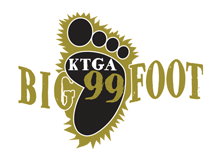February 15, 2022 |
The Wyoming Legislature convened Monday with Governor Mark Gordon addressing both the House and the Senate gathered together in joint session. In his State of the State address, the governor was both cautious and optimistic as he compared the last two years to the early morning cattle drives of his youth in Johnson County.
Audio PlayerThe governor said “Wyoming is strong, and getting stronger” despite tremendous challenges the state faces. Most of those challenges are the result of federal policies. However, Gordon noted that schools are open and unemployment has fallen to the lowest levels since 2008.
Audio PlayerThe governor said the financial plan he prepared for the 66th budget session is balanced, transparent and forward-forward looking. It’s also frugal. The governor said while the revenue picture is brighter than two years ago, inflation is at a 40-year high. Gordon recalled those times.
Audio PlayerThe governor recommended two steps to safeguards against erosive effects of inflation. One is to place an additional $400 million in savings. The other is to make marketplace adjustments in salaries for state employees who are leaving for higher paying jobs in other states and for county governments in Wyoming.
Applause greeted Governor Gordon’s assertion that the market adjustment as essential and something that cannot be put off any longer. The biggest applause in the speech came when the Governor, echoing the words of Ronald Regan’s 1987 speech at the Berlin Wall, suggested that the energy policies of the Biden administration are on par with the heavy-handed centralized planning of the Soviet Union. Gordon said the Biden administration is waging war on Wyoming’s core energy industries with energy policies designed to limit production.
Audio PlayerMost lawmakers in the chamber rose in a standing ovation that lasted 30 seconds. The LSO’s microphones automatically mute during loud outbursts, so the applause was not broadcast over the internet stream.
The governor called for unleashing Wyoming’s natural resources so the nation could once again become energy independent. Gordon added that innovation, not regulation, should be guide energy policies. Regulations and unrealistic expectations cause more harm than good. Wyoming, he said, is in a position to lead in wind, solar, gas and coal, as well as carbon sequestration.
Audio PlayerGordon went on to say that tourism continues to be the bright spot in Wyoming’s economy. He called for more investments in developing more outdoor assets. Revenue from lodging is saving the general fund money and creating opportunities to build on what is already available.
Audio PlayerThe governor also called for more resources to deal with the looming fight over water rights. Gordon said water in Wyoming is sacred, and the state will need additional resources to protect it in the coming years.
Audio PlayerThe governor said other top priorities for the legislature will be education and the state’s healthcare system, which was exposed as vulnerable and stressed during the last two years. He called for a focused approach on both, including a health task force to improve accessibility and affordability.
The governor ended his 30-minute address saying he was optimistic about the future because the last two years has made Wyoming stronger and more engaged to tackle the challenges that lie ahead.
Following the joint session in the morning, the House and Senate convened for the first day of business in their chambers. House Speaker Eric Barlow gaveled the budget session to order.
Audio PlayerIn a joint statement, leadership described the three primary jobs lawmakers need to accomplish during the 20-day session:
1. Develop the state budget for the next two years. The state is enjoying 0 with more than half-million dollars in revenues than expected, but the windfall comes amidst great uncertainty in national markets.
2. Pass a redistricting plan matching population shifts detailed in the 2020 census. Speaker Barlow said he expects a hardy floor debate.
3. Appropriate American Rescue Plan money, local government funding and capital construction proposals.
Legislators will deal with redistricting and other high priority bills this week. Budget discussions are planned for next week. To stay on track, bills other than budget bills require a two-thirds vote to be introduced in a budget session.













